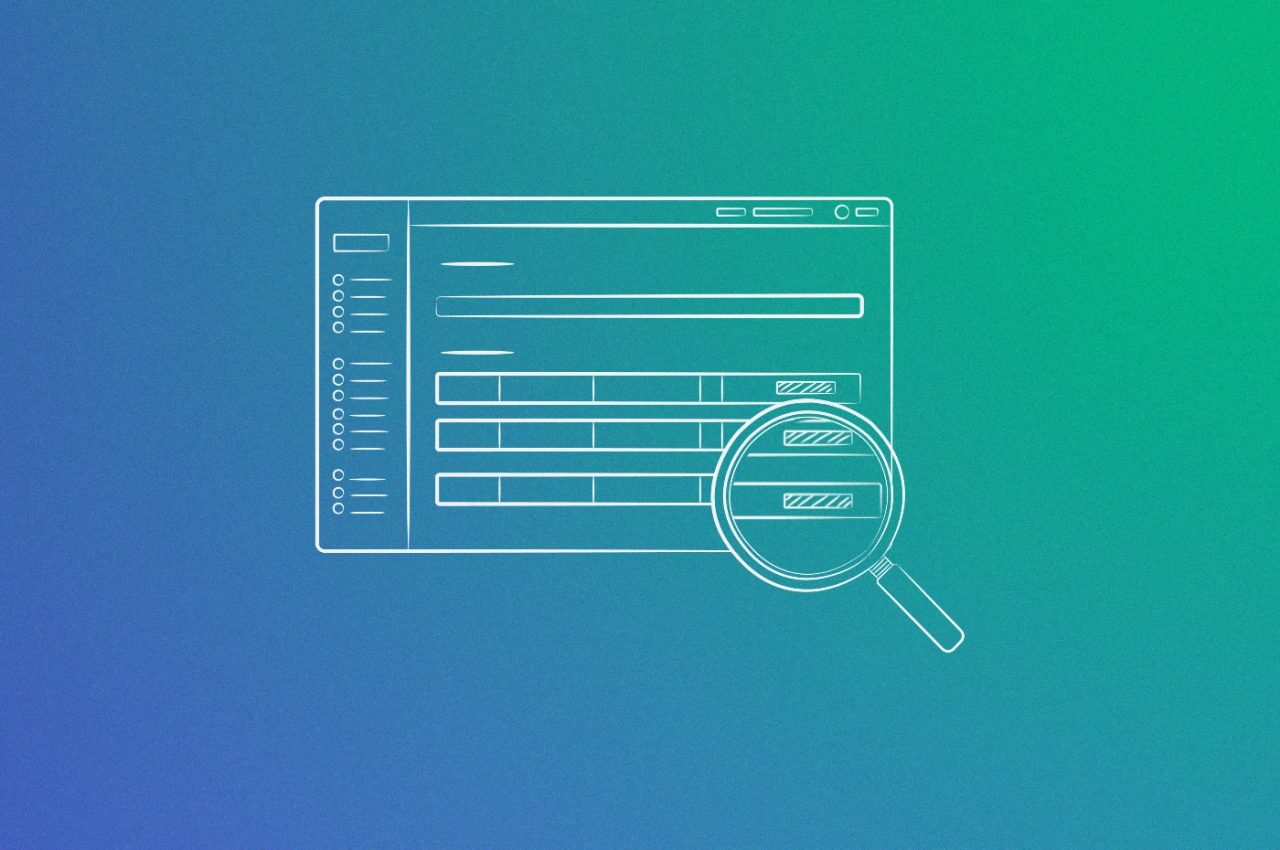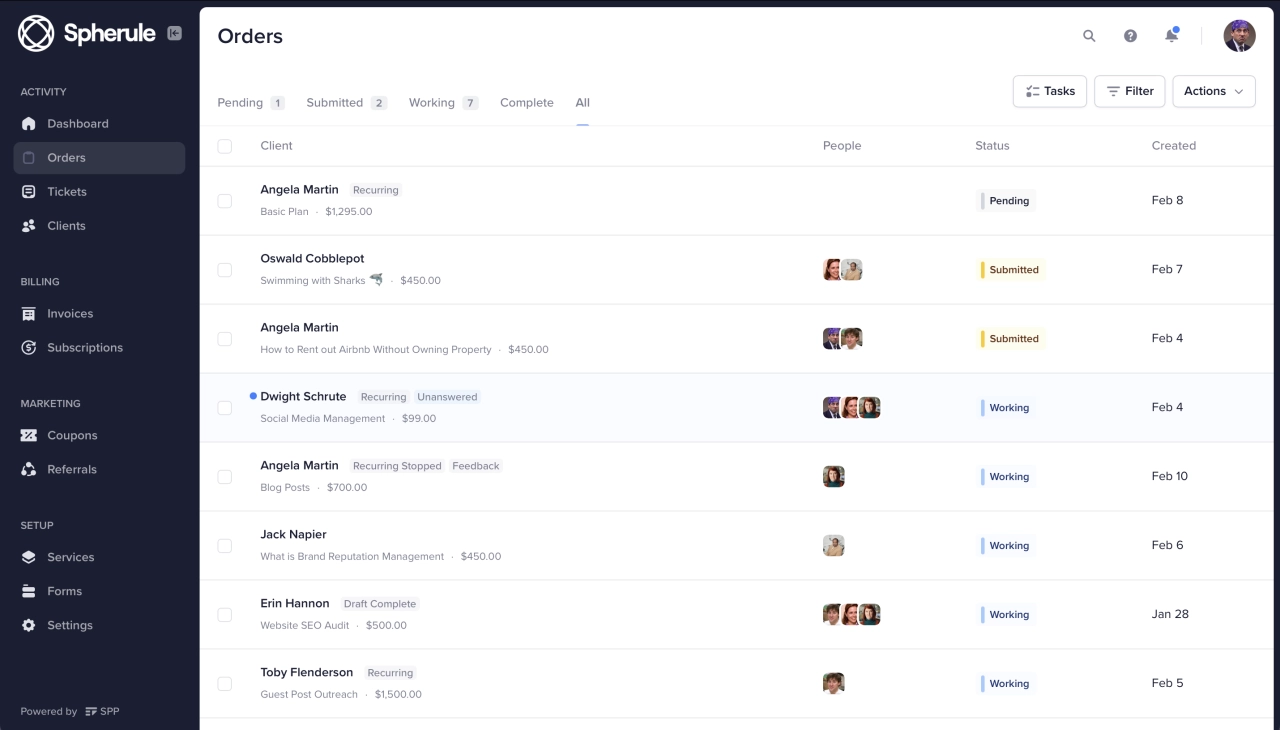The client portal has turned from a nice-to-have feature to something most companies heavily rely on. It helps them streamline their operations, message back-and-forth with clients, and strengthen their brand.
As this type of software has become increasingly more popular, so has it become more diverse. You can find client portals for different niches, such as SPP for agencies and productized services, while others focus on law firms.
Let’s take a closer look what a client portal is, what its benefits are, and how you can find the best client portal to give your clients access to everything they need.
What is a client portal?
Client portals are cloud-based software that clients can access through a website using their web browser. Typically, these portals are set up on a subdomain (clients.yourdomain.com), giving the appearance of being part of your company. The primary objective is to facilitate smooth client interactions while centralizing all information.
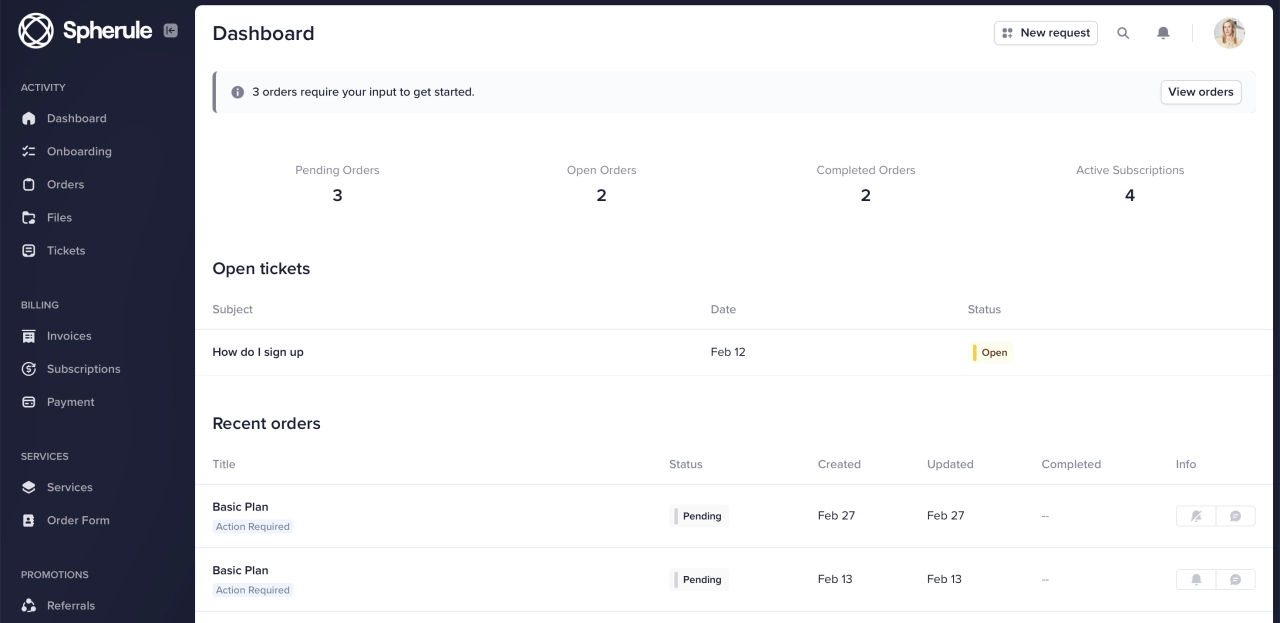
To securely exchange sensitive information, most portals require clients to register with an email address and password, and they secure the connection with SSL encryption. Once logged in, clients can access digital files, manage subscriptions, access private links, and more—all from a user-friendly dashboard.
Client portal benefits
Recent studies demonstrate the substantial financial impact of client portals: Over a three-year period, the deflection of interactions to more economical channels through self-service options was worth more than $9.2 million to a composite organization studied by Forrester Consulting.
One of the most important benefits of a customer portal is that it centralizes all information—for both the client and the company servicing them. From invoices to automatic email notifications, clients know when changes are made and if they need to provide additional information.
For companies, the portal is not only the single source of truth, modern client portal applications are also able to generate reports. Those can be used to identify recurring issues, and prevent them from happening. For instance, if customers ask the same question repeatedly, add it to your FAQ in the client portal.
Here are a few more benefits you can enjoy:
invite collaborators to deliver services more effectively
track invoice payments and send payment reminders
securely share sensitive files with customers
ask clients to fill out intake forms after payment
embed external reports individually for each client
improve your customer support with a FAQ section
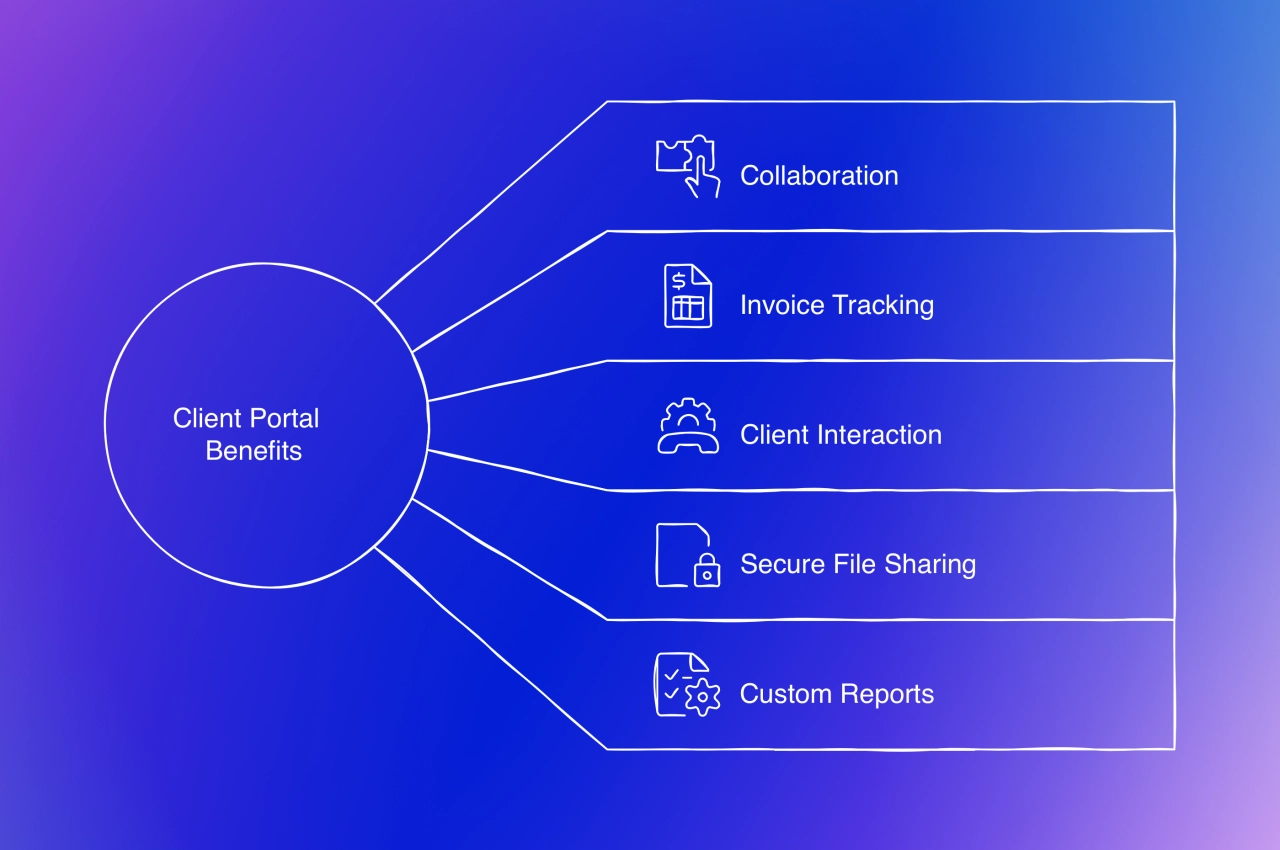
Different types of client portals
The main goal of a client portal is to improve the customer experience, which is why apps usually focus on enabling specific portal features, for instance:
Document & file sharing: Need to share files with your clients, or allow them to upload them? Find a customer service portal that manages files, and makes it easy to securely access documents in the future.
Invoice & subscription management: If your goal is to allow clients to self-service their subscription to your services, and download invoices, certain portals connect to payment gateways such as Stripe. Clients can easily upgrade their subscriptions, or cancel them if they wish.
Client onboarding: If your services require certain hand-holding, but you don’t have the resources to do it yourself, use a client portal that helps with onboarding flow. It could display videos, detailed documentation, or other tutorials.
Besides the aforementioned types, some solutions tailor explicitly to specific businesses. For instance, SPP targets agencies and productized services by offering the most important features those companies need. The software helps with the order management process, it provides a white label portal on certain plans, and is fully customizable.
Another way to distinguish customer portals is by the way they operate:
CMS plug-in: Some portals are available as a WordPress plug-in that integrates with your existing website. Of course, they require your website to run on the world’s most popular CMS.
Cloud hosted: Solutions such as Service Provider Pro are fully cloud hosted and managed by the developer. You only need to subscribe to their service, and get access to your own workspace.
On premise: Those who want to manage their own instance can either develop their own client billing portal, or find a solution they can host themselves.
5 portal software examples
Before choosing a portal software, it’s important to know if it meets your individual requirements. Some tools try to cover every possible scenario, but ultimately fall short when it comes to the features.
Here are a few different use cases.
SEO agencies
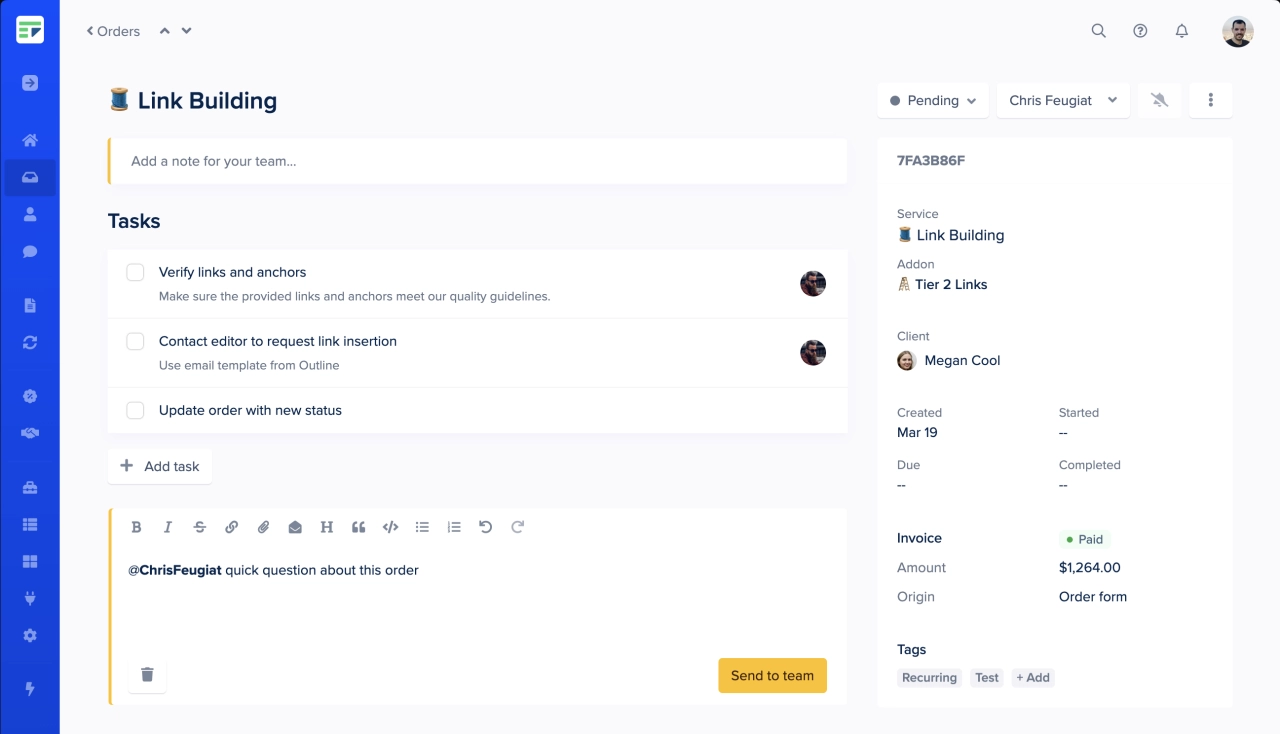
SEO agencies sell a variety of services, but what they all have in common is the need for reporting. That’s why the SEO agency customer portal should have built-in reporting options, or support a variety of client reporting tools. Most SEO agencies also partner up with other agencies, looking to get them to resell their SEO services.
Unique features:
embed SEO client reports via Agency Analytics
analytics dashboard to see bestseller services
grow your SEO agency with the reseller program
Content agencies
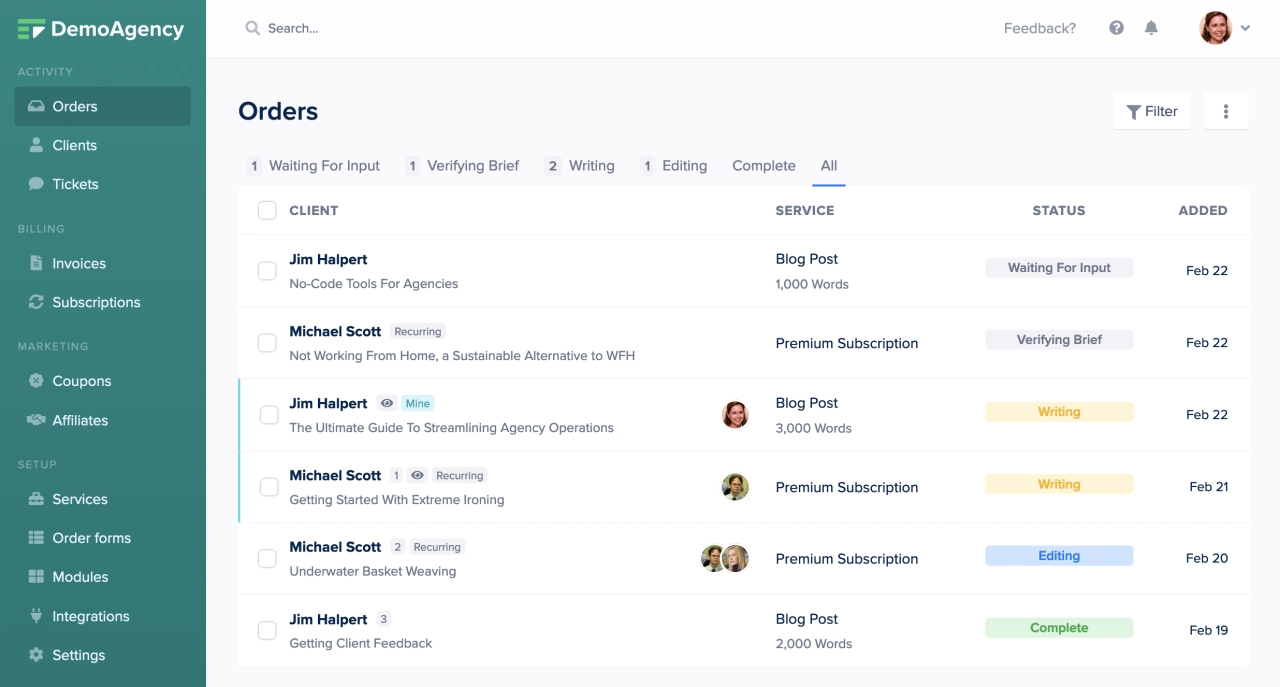
Content agencies have specific needs that are mostly linked to placing large content orders. Most of their B2B clients order in bulk, which means that the content agency customer portal should make this process as easy as possible. SPP, for instance, supports a spreadsheet-type input that makes copy-pasting a breeze.
Unique features:
spreadsheet input to handle large content orders
native Zapier integration to automate content delivery
team-based permissions to invite external collaborators
Link building agencies
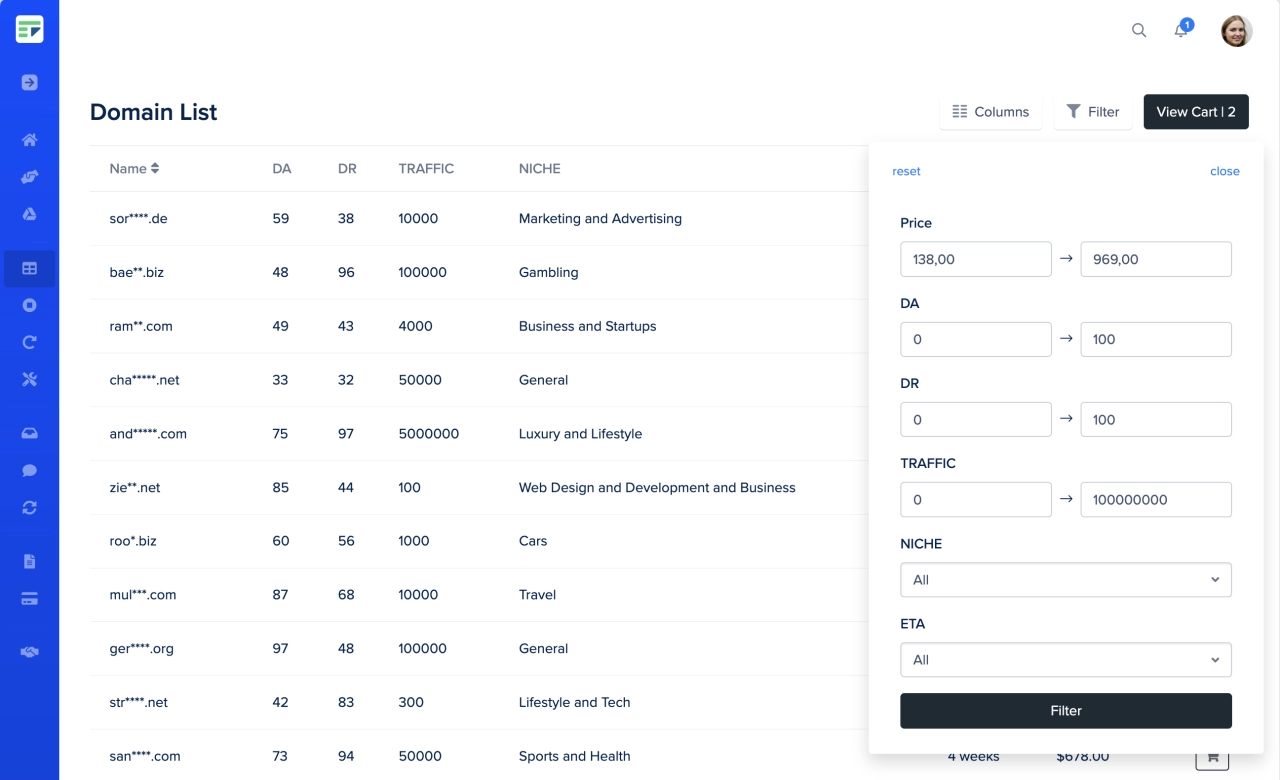
Link building agencies have either a hands-off approach and sell links from different domains, or monthly recurring packages. In any case, the link building agency customer portal should support both of these options, allow for easy upselling, and support project intake forms.
Unique features:
sortable catalog feature to easily sell links
service add-ons to increase cart order value
intake forms to gather project-specific information
Video editing agencies
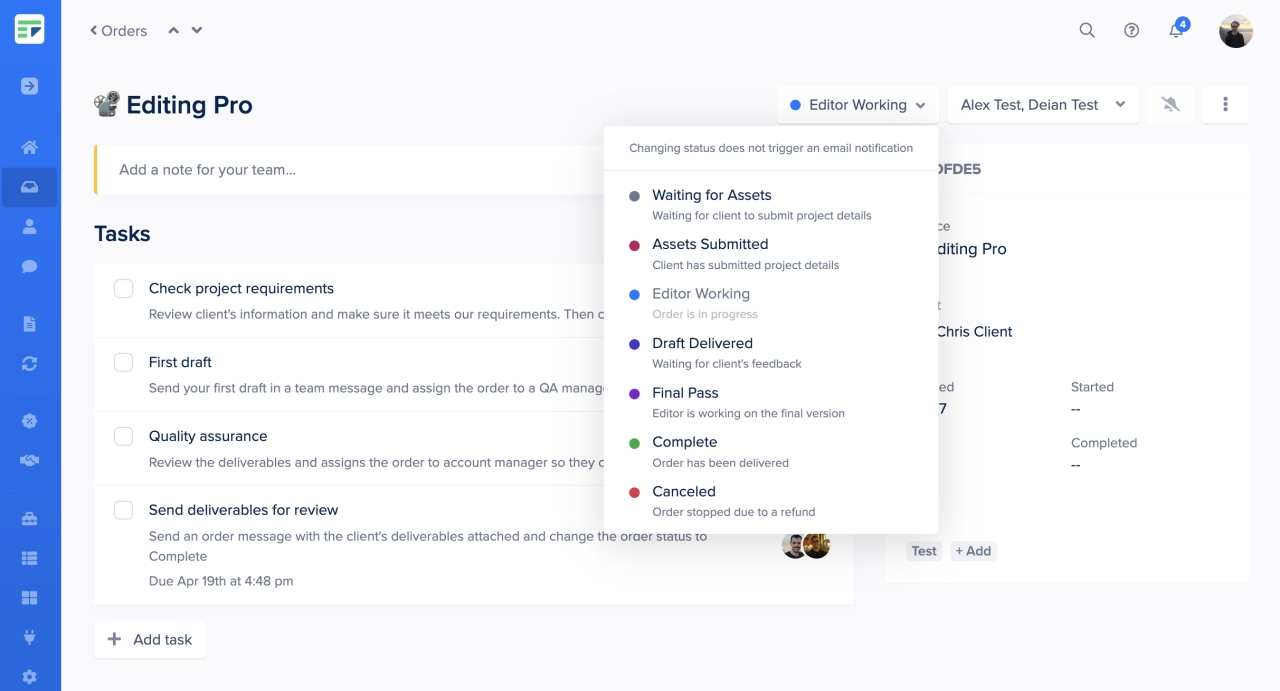
Video editing agencies work with large files that clients need to submit without interruption. SPP makes it easy for them to allow large attachments in projects, but agencies can also use the Google Drive integration. In order to approve projects in the video editing agency customer portal, clients can use the emoji-based approval process.
Unique features:
native file management supporting large attachments
emoji-based approval process
Social media management agencies
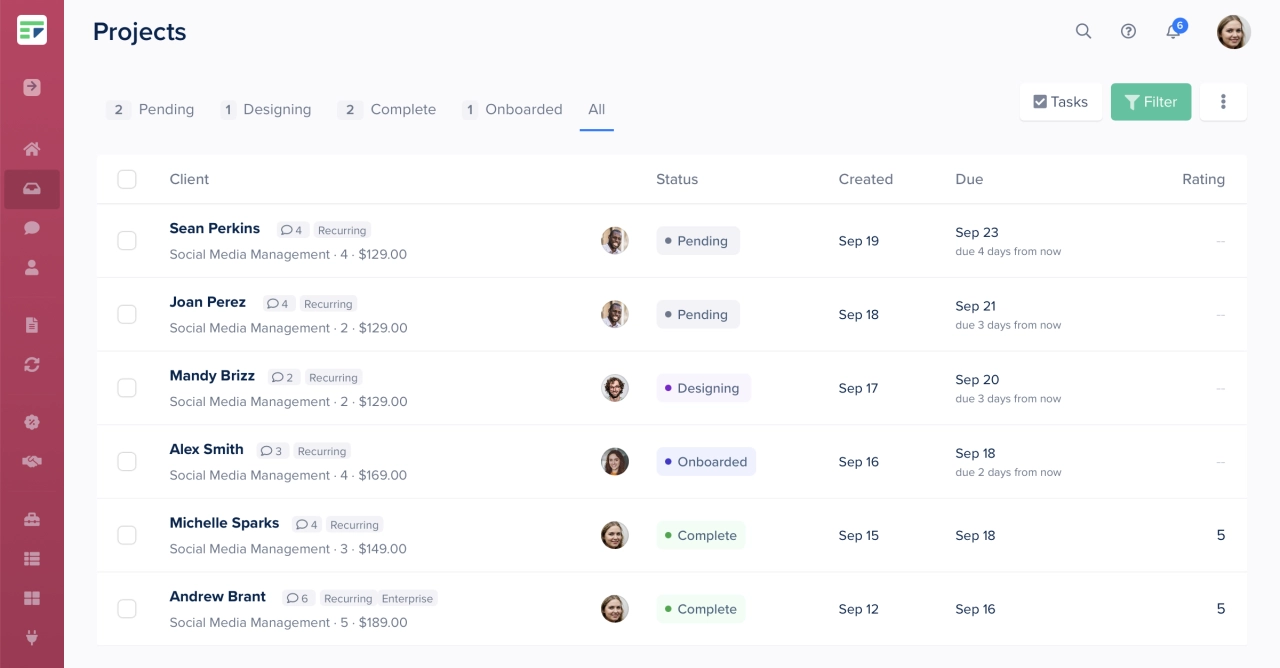
Social media management agencies put a lot of effort into their new client onboarding process. When it comes to their SMM agency customer portal, they would like to easily capture branding information, but also need team management features that support their collaboration efforts. Lastly, this type of agency relies heavily on reports, which they can share with a variety of reporting integrations.
Unique features:
onboarding form for your branding questionnaire
team collaboration feature for clients to work on projects
Klipfolio integration to share social media reports
The increasing popularity of client portals
Client portals have gained significant traction across various industries, driven by the need for enhanced customer experience, operational efficiency, and digital transformation.
Below are key statistics and insights about their popularity and adoption rates:
Market size and growth: According to Verified Market Research, the Client Portal Software Market was valued at USD 1.81 Billion in 2024 and is projected to reach USD 3.38 Billion by 2031, growing at a CAGR of 8.15%. Some estimates from Wise Guy Reports suggest even more aggressive growth, with the market potentially reaching USD 32.8 Billion by 2032. This substantial growth reflects businesses’ increasing recognition of client portals’ value in strengthening brand image and improving customer relationships.
Adoption rates: In IT service management, 82% of organizations now offer a self-service portal as a channel for accessing IT support, slightly behind email (84%) but ahead of telephone support (76%). However, adoption rates vary significantly, with controlled experiments showing a 71% adoption rate while real-world implementations achieve only 23%.
Regional insights: In 2023, North America led the global client portal software market, holding around a 36% market share, with significant growth also seen across Europe, Asia Pacific, and the Rest of the World.
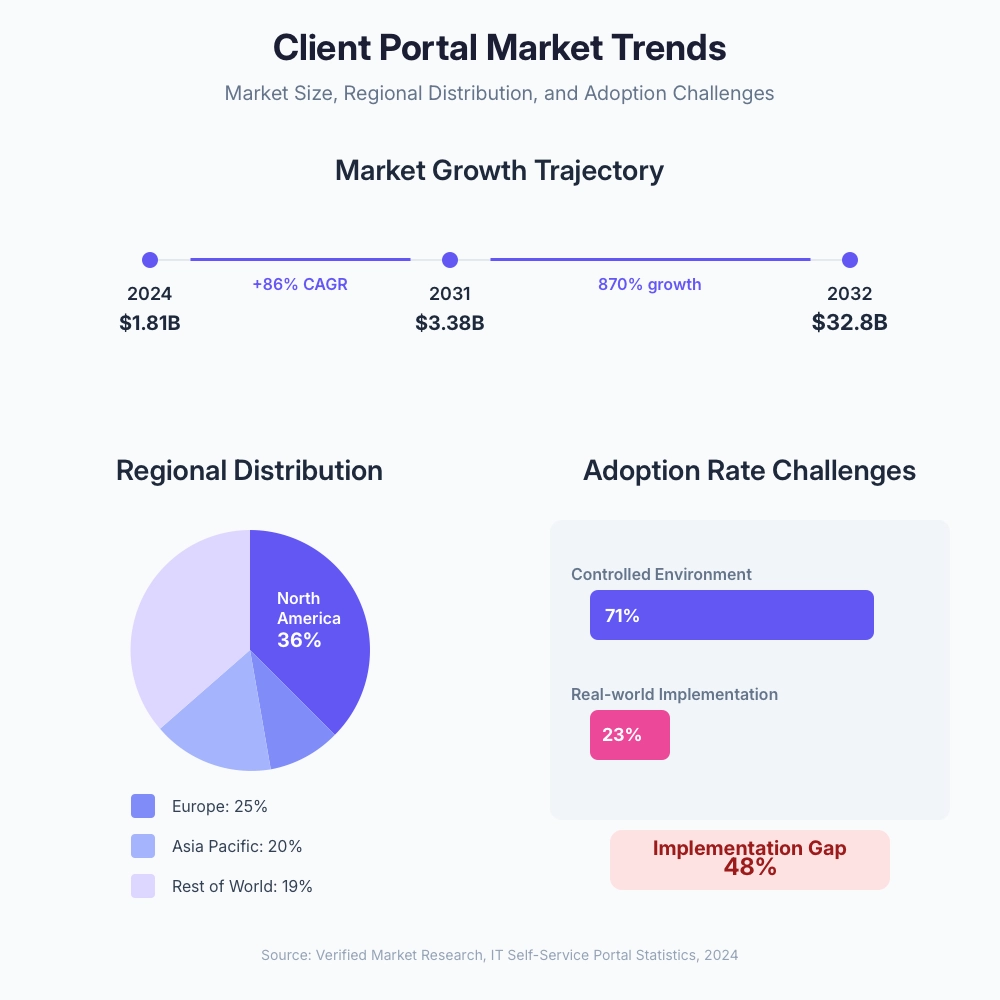
What defines a secure client portal?
Any company should have security measures in place that prevent data from being accessible to third parties. While any client portal software should be secured via SSL, some industries have higher needs when it comes to dealing with customer data. Those might be required to host the software on their own services, instead of relying on the developer to manage it.
An often overlooked security measure is app monitoring and redundancy. A secure client portal has failovers in place that reduce downtime and ensure that the performance of the software remains solid, and minimze the chance of data loss.
Of course, customer databases should always be kept separate, and they should be encrypted. Account password should never be saved in plaintext.
Speaking of passwords, the best customer portals make use of additional security measures such as two-factor authentication for staff accounts.
Challenges in implementing client portals
Implementing a client portal can be a challenging process for businesses and organizations. One of the significant challenges is integration with existing systems, which may require custom development or extensive configuration to ensure seamless data exchange.
Data security concerns
When it comes to client portals, security concerns cannot be ignored. Here are some key issues that need to be addressed:
Data encryption : Ensure all sensitive information, such as financial data and personal identifiable information (PII), is encrypted both in transit and at rest.
Access control: Implement robust access controls, including multifactor authentication and role-based access control, to limit user access to authorized personnel only.
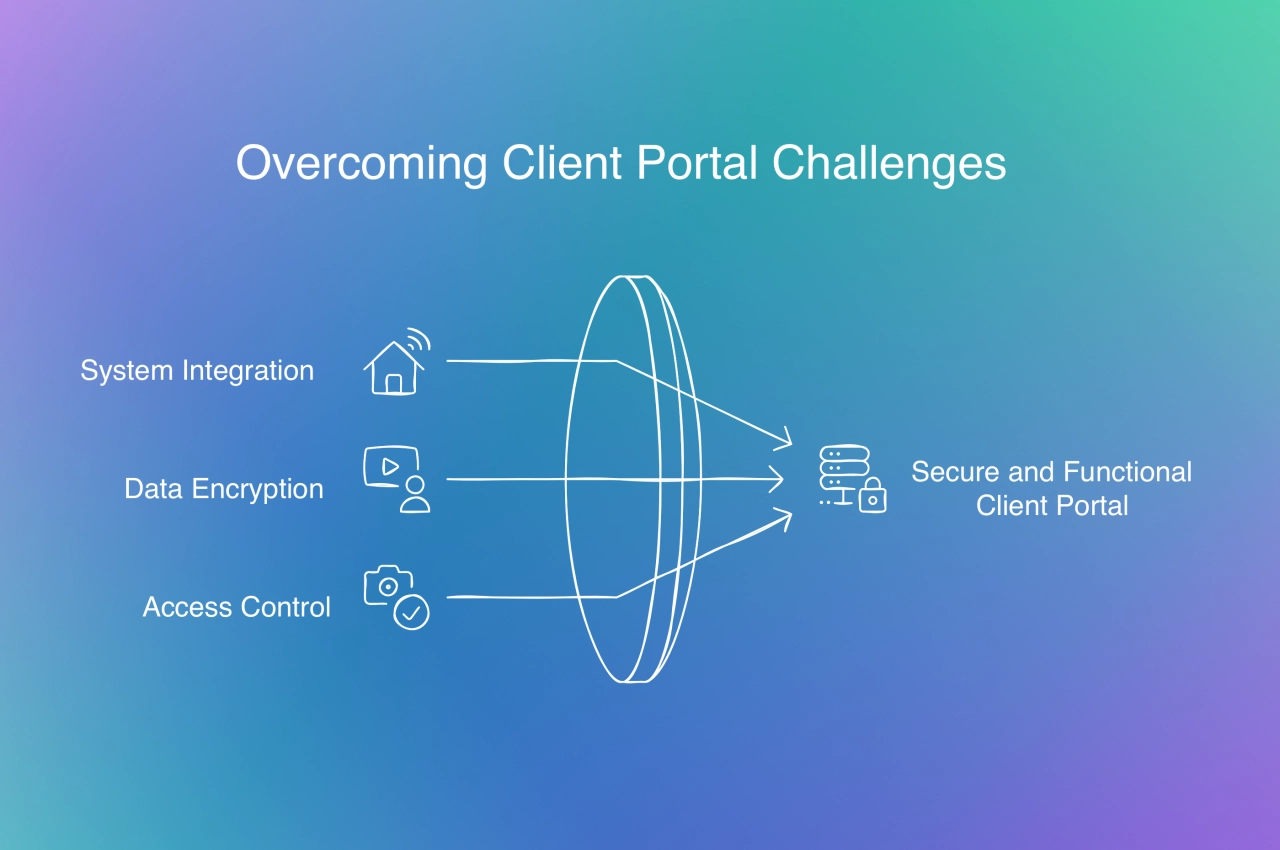
User resistance and adoption issues
To ensure a successful client portal implementation, it's essential to address potential resistance from employees and clients. Here are some strategies to boost adoption:
Clear communication : Clearly communicate the benefits of the new system, including improved efficiency, enhanced security, and better customer experience.
Training and support: Provide comprehensive training and ongoing support to ensure all users feel confident in their ability to use the platform effectively.
To overcome these challenges, businesses can take several steps:
Assess existing systems and identify integration requirements
Conduct thorough risk assessments for data security concerns
Develop a user-centric approach to address adoption issues
Frequently asked questions about customer portals
How much does a client portal cost?
We’ve gone into detail on client portal pricing in this post, but generally speaking, this type of software can less than $100 per month, or several hundred, depending on your requirements. Some software providers have priced their software on a per-user basis.
Do client portals provide bank-level security?
Yes, modern apps should encrypt their data with the same standards as financial institutions (256-bit encryption). We recommend to check with the developer if they’ve been independently audited, though.
Why should you use a client portal?
A modern client portal allows you to centralize all information, and handle most of your tasks from one place. They can usually be extended to work with other software you use, thanks to webhooks, integrations with Zapier, and API’s.
What kind of ROI can I expect from a client portal?
Client portals can deflect up to 40% of support inquiries to self-service channels and save organizations millions in operational costs, according to The Total Economic Impact Of Salesforce Service Cloud.
- Client Portal Pricing: The True Cost of Building Your Own Portal
- Top 5 Best Client Portal Software for 2025
- Customer Portal Features & Best Practices: What Your Software Needs
- How to Track Tasks and Boost Your Productivity
- Reseller vs. Affiliate Programs: Differences and How to Make Use of Them
- How to Create a Client Portal for WordPress: The Ultimate Guide
- Customer Self-Service: A Brief but Comprehensive Guide
